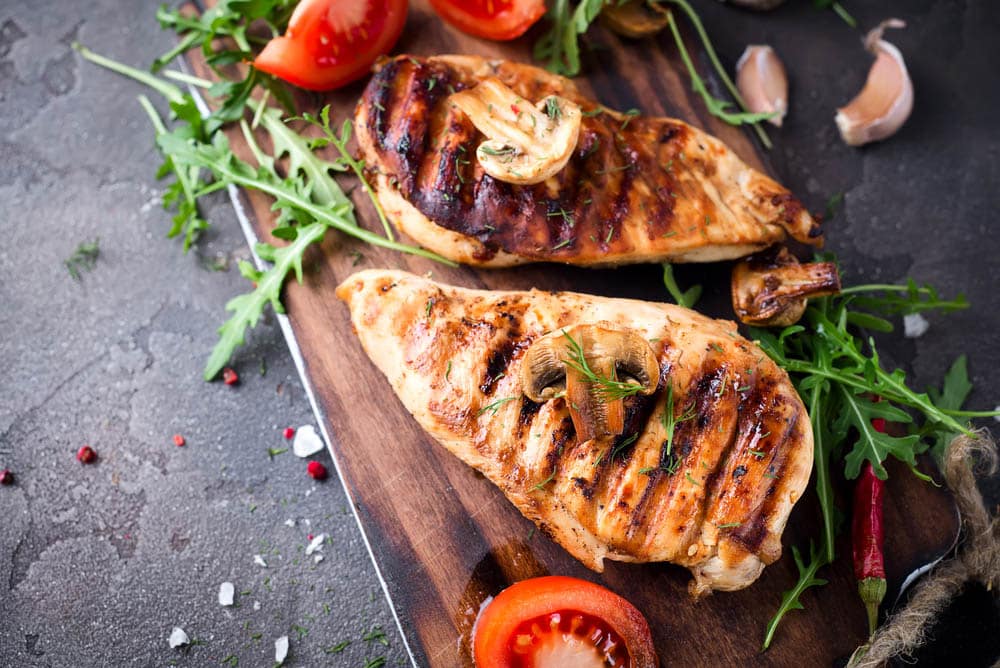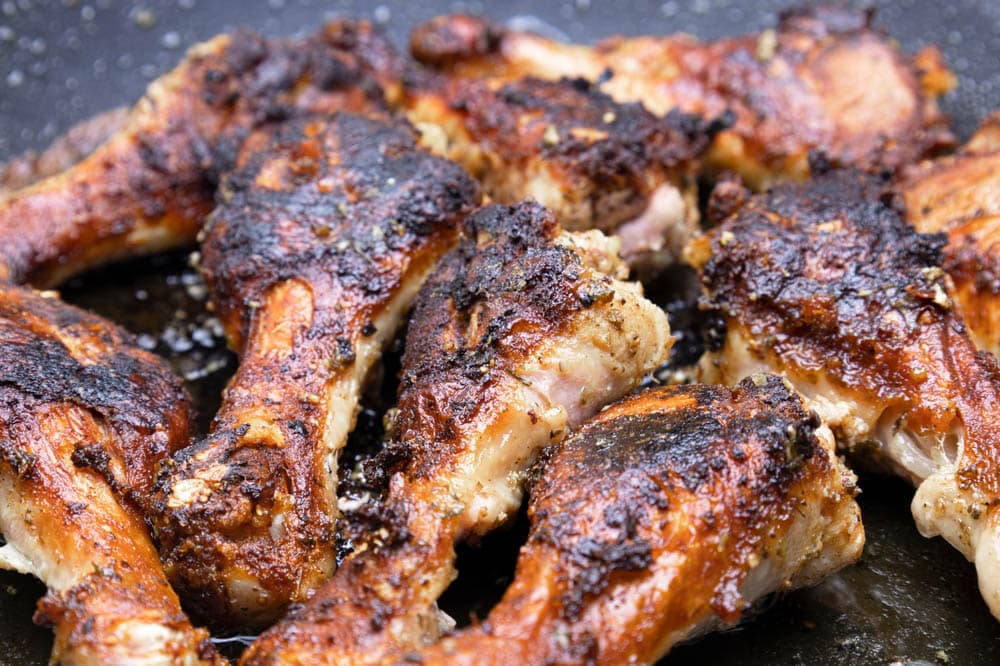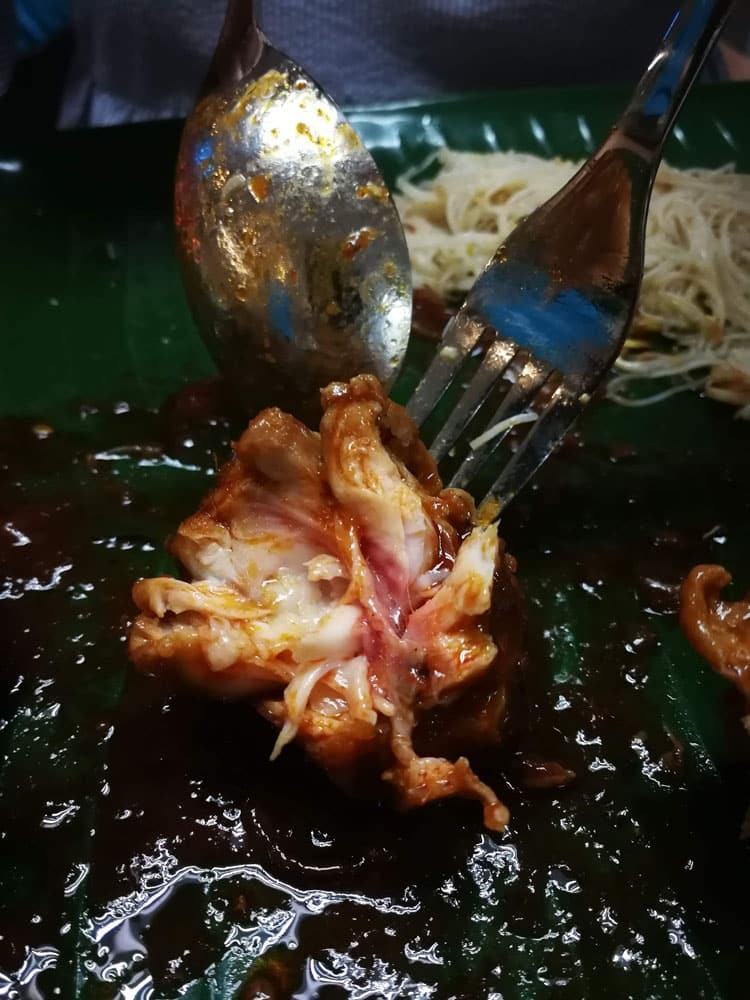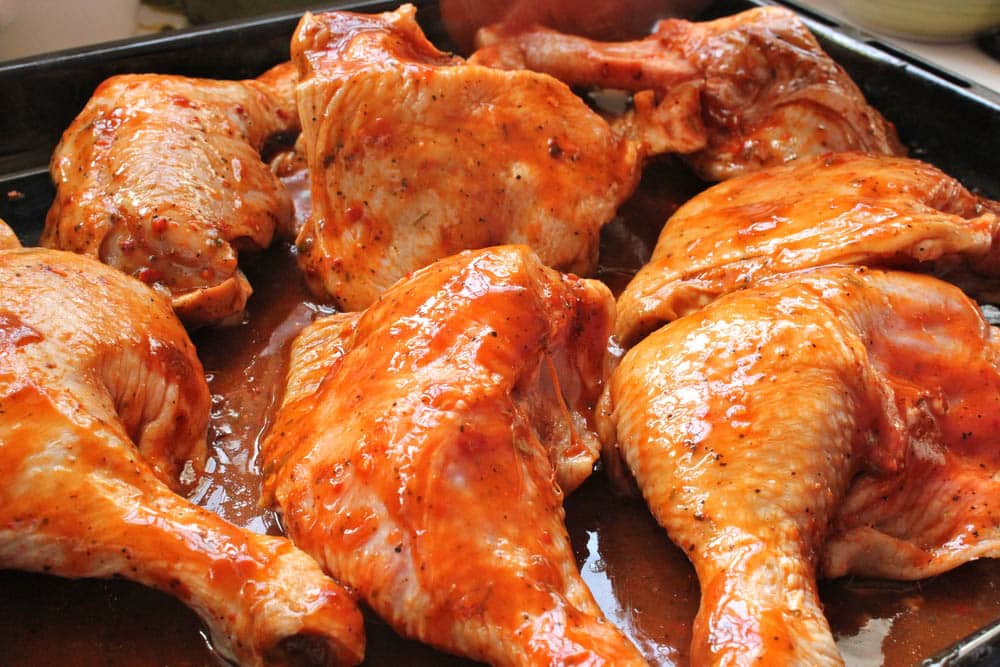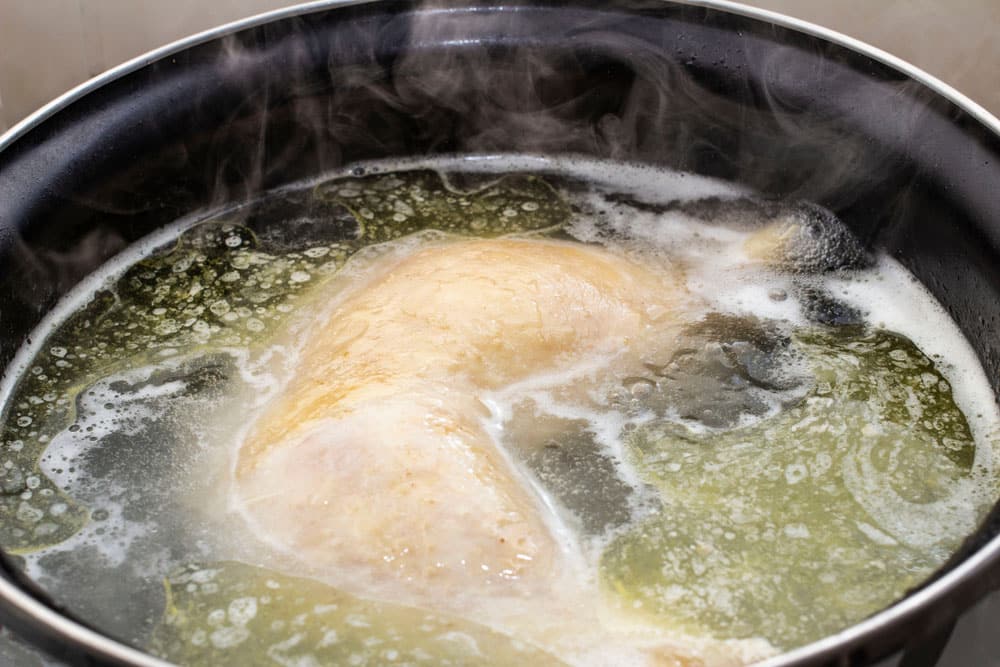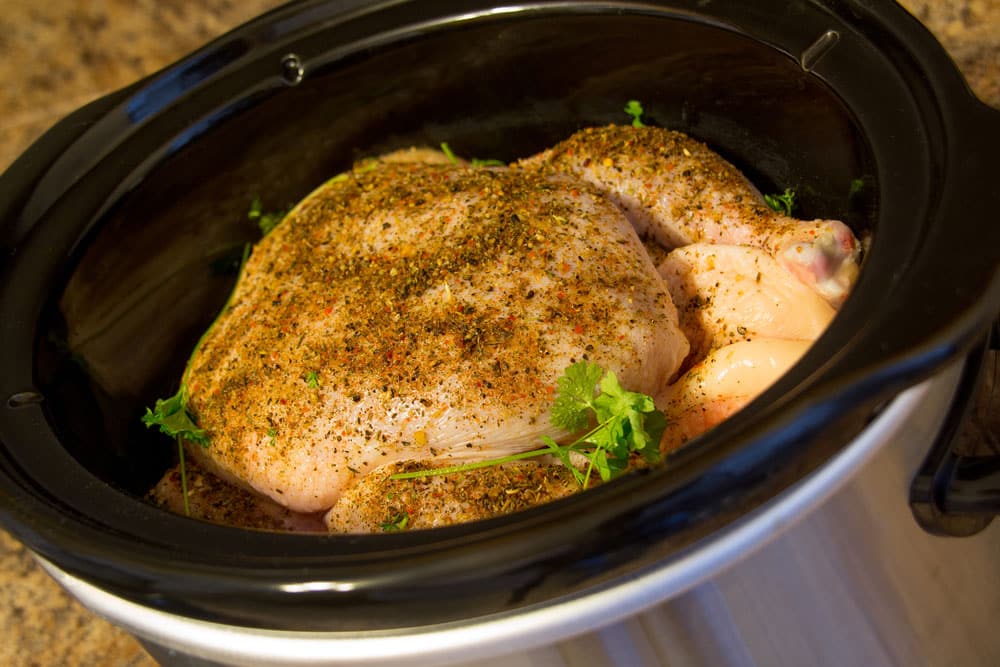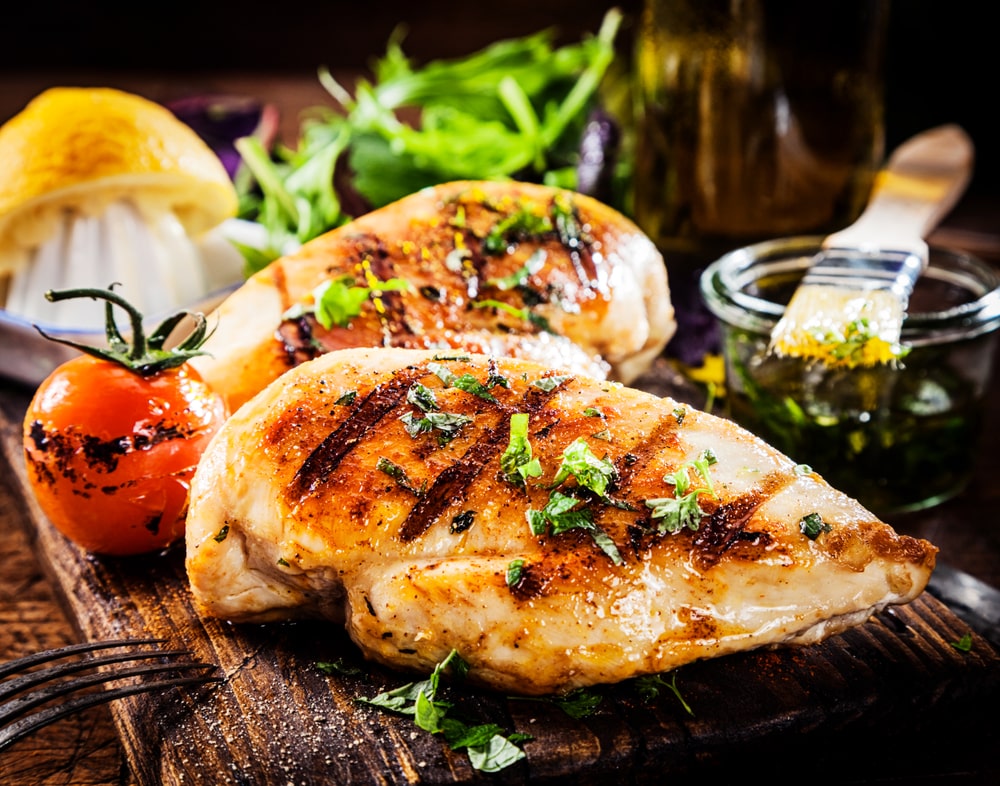
Have you ever wondered why chicken tastes rubbery?
Chicken is undoubtedly the most popular meat that is loved by all and consumed in most of the world. However, you must ensure you cook the chicken correctly to get the desired taste and texture.
It is certainly not something that is found often, but chicken might taste rubber-like occasionally, and you should avoid mistakes while cooking your chicken to avoid such an occurrence on your chicken.
The best way to avoid such problems would be to analyze what causes the chicken to taste rubbery.
Why Does Chicken Taste Rubbery?
- Age of Chicken
This is the first thing you will need to keep in mind, and if you purchased chicken that’s older than a couple of months, the meat is more likely to get hard, and it will taste rubbery upon cooking.
There is not much you can do about it, but you must ensure that you’ve selected the right chicken. It’s easier if you are farming chicken or purchasing it from the same farm, but it can get tricky at supermarkets.
The type of chicken you buy lays the foundation for the perfect meal. Two types make it harder to cook the perfectly tender chicken:
- Wooden breast chicken
- White striping chicken
Wooden breast chickens are chickens that have bulging muscles, which causes a higher consistency. These are harder to chew. These can be easily spotted on chickens that are hard to the touch with poor colour and texture quality.
White striping chickens are chickens with a condition that causes white fatty stripes along the muscle fibre lines on the breast, thighs and tender muscles. In short, it’s when fat replaces the muscle. These white lines are easy to spot in supermarket chickens.
The key to choosing the right chicken at the supermarket is to ensure that you are not picking the chicken with a darker shade of pink as it is more likely to taste rubbery when you try to eat it.
In addition to this, you will also need to be careful about the touch and ensure that the chicken is soft on the touch and not hard.
- Overcooking/undercooking
Another common reason for the chicken to taste rubber-like is the amount of time it is cooked. If you are overcooking the chicken or undercooking it for any reason, that will certainly affect the chicken, and it is likely to taste rubbery.
Always ensure you follow the recipe strictly and that you keep checking the chicken. The above goes for all methods of preparing chicken, including cooking, baking, frying, or grilling, and you will need to cook it for just the right amount of time.
The best way is to keep checking the chicken with a fork, and the moment it changes colour and starts to appear a bit hard on touch, you need to stop cooking the chicken as that should be enough heat for your chicken.
That will optimally help you ensure you are not making any mistakes while preparing your chicken and will not taste rubbery. It can get unappetizing to consume chicken that tastes like rubber, and it would be beneficial to keep these factors in mind while cooking the chicken.
- Uneven heat
Uneven heat on the chicken while cooking is another common reason for your chicken to taste like rubber.
While the upper parts of the chicken can get the right heat, and they might appear to be perfectly cooked, you need to ensure that the inner parts of the chicken are also cooked and not left uncooked.
That is simple, and you should keep stirring it if you are cooking the chicken with gravy, but you should also keep an eye on the grill and keep rotating your chicken so all the parts get cooked evenly.
Uneven heat can cause some parts of the chicken to be left undercooked, and it will taste like rubber once you try to chew it. That is certainly something you need to avoid and you’re unlikely to face any problems with your chicken tasting like rubber.
- Marination
In rare instances, chicken might taste rubber-like if you have not marinated it correctly.
So, you will need to ensure that you are marinating it right with butter and spices, or you can also use some yogurt to ensure that the chicken is perfectly marinated, allowing you to enjoy the perfect taste of your chicken.
How Your Cooking Methods Give Chicken A Tire-Like Texture
Rubber-like chicken is ultimately caused by too much exposure to high temperatures for too long. Various cooking methods influence chicken’s texture. Here are four cooking methods best used to avoid the rubbery taste:
- Steaming
- Boiling
- Slow cooking
- Stewing
Let’s see how each of these methods can help you prepare a soft chicken.
- Steaming
The steaming method is an incredible way to prevent the chicken from tasting rubbery. Not to mention healthy! Wrap your chicken in foil with the desired spices or perhaps some vinegar, and you will have a deliciously moist chicken.
The foil helps lock in the moisture for that tender taste and texture. Keep checking the chicken to make sure it’s not getting too hard. Follow this recipe for the perfect steamed chicken.
- Boiling
The best way to prevent a chicken from tasting rubbery is by using a cooking method that involves much water. Boiling your chicken can help prevent the rubber-like taste. Ensure your water is hot enough that a bubble breaks the surface every now and then.
Time your boiling period according to the size of your chicken. A medium size chicken should boil for approximately 40-60 minutes if it’s fresh. Have a look at this awesome recipe by clicking on this link!
- Slow cooking
Slow cooking is another effective way to keep your chicken moist and soft. If you have not tried this method, you really should! Add your desired vegetables to a slow cooker – carrots, chopped-up onions etc. Place your chicken on top to keep it slightly raised.
This method helps prevent the chicken’s muscles from tightening due to sudden exposure to high heat. A 1.4kg chicken should be slow-cooked for approximately 5 hours. You can opt to put the chicken in the grill for a few minutes to give the skin a brown glaze.
For the best slow-cooking chicken recipes, visit: https://www.bbcgoodfood.com/goodfoodsubsclub-2
- Stewing
Stewing is another rubber-proof method that will give you a mouth-watering chicken meal. Chicken breasts are generally not that great for stewing, but the remainder of the chicken is great for this. Ever wonder how that chicken from the restaurant falls apart?
The secret to moist chicken that nearly falls apart is that the collagen in a chicken’s body turns into gelatin when exposed to moist environments at low temperatures. This is guaranteed to give you a delicious chicken! For stewing chicken recipes, check out this link!
Final thoughts
It’s become clear that chicken is best cooked slowly and at lower temperatures rather than high. The more water you can add to your cooking method, the better.
Water and low temperatures (and patience) are the secrets to preventing your chicken from going hard and tasting like rubber. Chicken is best cooked slowly; therefore, do not cook chicken when you are hungry!
When preparing this delicious white meat, do not be afraid to experiment with this versatile meat! You will be guaranteed to have a moist, mouth-watering meal every single time!
